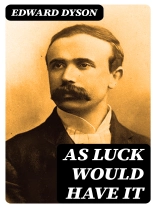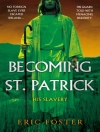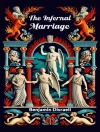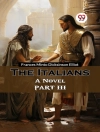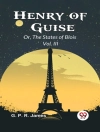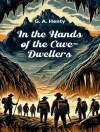In 'As Luck Would Have It, ’ Edward Dyson weaves a compelling narrative that intricately blends humor with social commentary, exploring themes of chance and fortune in the lives of ordinary Australians. Set against the backdrop of the early 20th century, Dyson employs a colloquial style rich in local vernacular, painting vivid portraits of his characters as they navigate the unpredictable currents of fate. The novel deftly combines anecdotes and satire, giving readers a penetrating glimpse into the cultural and societal norms of the time, while reflecting Dyson’s own experiences and observations of Australian life. Edward Dyson, a prominent figure in Australian literature, drew upon his diverse experiences as a journalist, poet, and novelist to craft this engaging tale. His gritty realism and fondness for the common man is evident throughout this work, suggesting that Dyson’s own interactions with life’s unpredictable turns have significantly shaped the narrative. With a background in both the arts and journalism, he skillfully captures the essence of human resilience and folly in the face of randomness. 'As Luck Would Have It’ is a must-read for those who appreciate insightful storytelling infused with wit and a deep understanding of human nature. It invites readers to reflect on their own lives and the often whimsical nature of fortune, making it a timeless exploration of chance that remains relevant today.
O autorze
Edward Dyson (1865–1931) was an Australian journalist, poet, and fiction writer, contributing significantly to the literary depiction of Australian life at the turn of the 20th century. Known for his wit and keen observance of the Australian society, Dyson’s works often reflected the gold mining culture, blending humor with the struggles of everyday Australians. He was born in Ballarat and started his career as a journalist, which influenced his literary work, characterized by a strong narrative voice and vivid imagery. 'As Luck Would Have It’ is merely one example of his literary oeuvre that offers a glimpse into the historical and cultural landscapes of his era. Dyson’s writing style frequently incorporated vernacular language and was marked by an unyielding authenticity that resonated with his readers. His prolific output included not only fiction but also verse, where his humorous poetry, such as in the collection 'Rhymes from the Mines’ (1896), cemented his reputation as a distinctly Australian writer. Though his books may not be as widely read today, Dyson’s contributions to Australian literature have been recognized for capturing the essence of life, particularly in the goldfields and urban landscapes, during a defining period of the country’s development.
